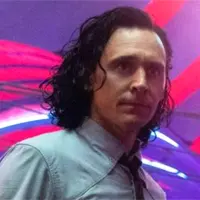Loki's bisexual revelation is a big step for Marvel, but it feels odd as a superhero show milestone
-

"Seeing as it comes during Pride Month — and on a planet bathed in the pink, purple, and deep blue color scheme of the bisexual flag — it certainly seems like Marvel Studios recognizes that Loki’s casual revelation of his sexuality would carry significant meaning for many LGBTQIA+ fans," says Adam B. Vary of the Loki Episode 3 revelation. "And yet, in 2021, it feels a bit odd to be celebrating this fleeting acknowledgment as a milestone in queer representation when there are so many other examples of superhero TV shows embracing it. The CW’s Batwoman centers on two lesbian superheroes — Kate Kane (played by Ruby Rose in Season 1, and Wallis Day in Season 2) and Ryan Wilder (Javicia Leslie). Similarly, on the CW’s Supergirl, the titular hero’s sister Alex (Chyler Leigh) is gay and has had multiple girlfriends; on Season 4, the show debuted TV’s first trans superhero, Dreamer (played by trans actor Nicole Maines). Matt Bomer plays gay superhero Larry Trainor on HBO Max’s Doom Patrol. Jefferson Pierce’s daughter Anissa (Nafessa Williams) on Black Lighting is a lesbian; Oliver Queen’s son William (Ben Lewis) on Arrow is gay. Amazon’s The Boys explores how Queen Maeve (Dominique McElligott) had to end her relationship with her girlfriend for fear of being outed; on Invincible, by contrast, the titular hero’s gay best friend William (Andrew Rannells) is very much out and proud. Queer representation isn’t limited to TV heroes, either: On Fox’s Gotham, the Penguin (Robin Lord Taylor) was in love with the Riddler (Cory Michael Smith), and Jada Pinkett Smith’s Fish Mooney was sexually fluid. And on Netflix’s Jessica Jones — technically a Marvel TV series, though not one produced by Marvel Studios — the morally flexible lawyer Jeri Hogarth (Carrie-Anne Moss) had several girlfriends. In the final season of the show, Jessica (Krysten Ritter) also had a trans assistant, Gillian (played by trans actor Aneesh Sheth). That’s far from a comprehensive accounting of openly LGBTQIA characters in superhero storytelling, but when we turn the lens to Marvel Studios, the picture gets profoundly smaller. There’s the grieving gay man in Avengers: Endgame played by director Joe Russo. Tessa Thompson has said that her Thor: Ragnarok character was bisexual, but any mention of it was cut from the film. And that’s pretty much it. So making Loki — one of the most popular characters ever to grace the MCU — explicitly bisexual does mark a significant step forward for LGBTQIA representation…for the MCU."
ALSO:
- Loki director Kate Herron says her "heart is so full" after bisexuality revelation: "From the moment I joined @LokiOfficial it was very important to me, and my goal, to acknowledge Loki was bisexual," she tweeted. "It is a part of who he is and who I am too. I know this is a small step but I’m happy, and heart is so full, to say that this is now Canon in #mcu."
- Loki's bisexuality confirmation is a watershed moment for Marvel: "When I tell you I kicked my feet into the air with delight and gasped out loud during episode 3 of Loki, that’s not hyperbole," says Kaila Hale-Stern. "'Lamentis' is a gorgeous episode for many reasons—the script, acting, character growth, action, direction, and cinematography are all on point. What’s currently setting the Internet on fire, however, is a scene that confirms Loki’s queerness in the MCU. This is a watershed moment for Marvel Studios, and it’s something Marvel and Loki fans have long hoped for. That it’s done beautifully and acted exquisitely by Tom Hiddleston and Sophia Di Martino made the confirmation even more poignant."
- Read Loki fan reactions to bisexuality revelation
TOPICS: Loki, Disney+, Tom Hiddleston, LGBTQ, Marvel
